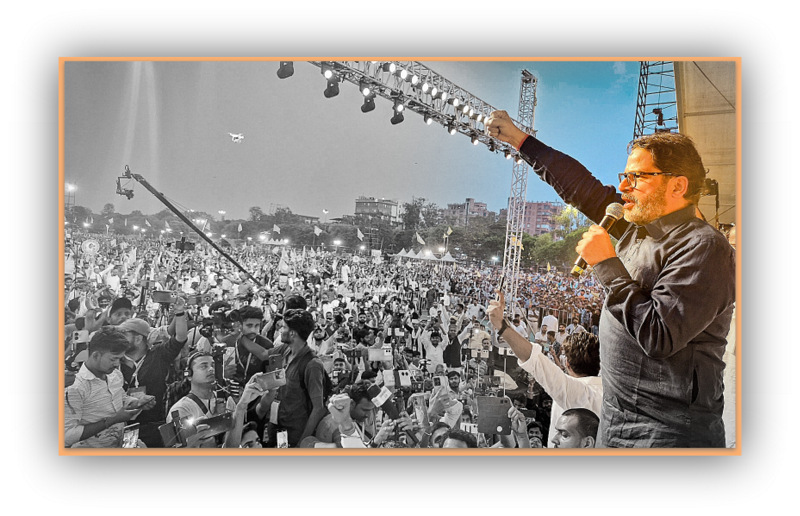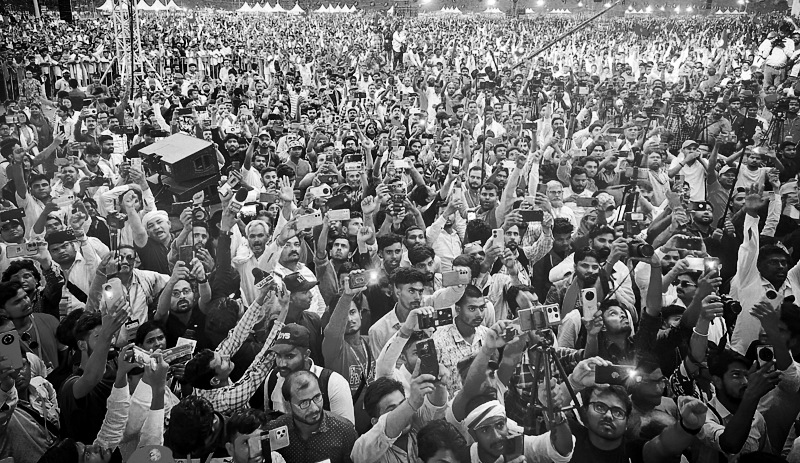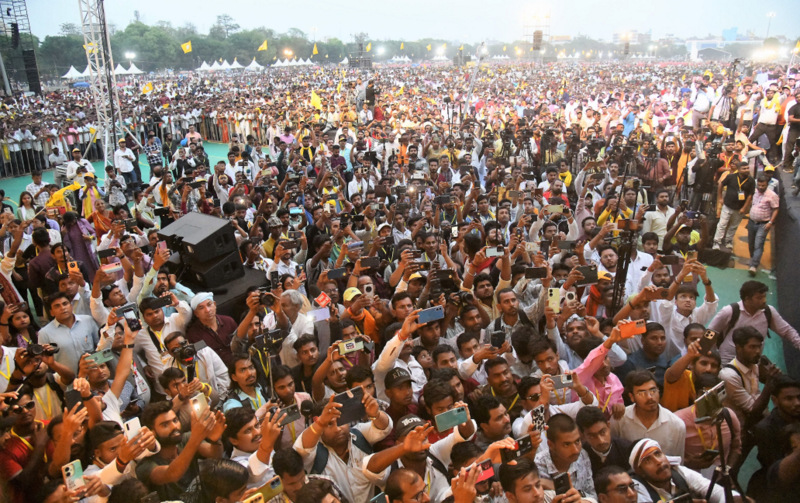Global media Update tech Update & Automobile Life Style & Entertainment

Patna, April 11, 2025 — Political strategist-turned-leader Prashant Kishor officially launched the election campaign of his Jan Suraaj Party with a mega rally at the historic Gandhi Maidan in Patna. Dubbed the ‘Bihar Badlav Rally’, the event was positioned as the first major step toward bringing political transformation in the state.
Taking the stage at 6 PM, Kishor addressed a visibly thinner-than-expected crowd. Acknowledging the low turnout, he expressed regret and alleged that the state administration deliberately created traffic chaos around Patna to hinder public participation.
“Despite prior information about the rally, nearly two lakh people were left stranded in traffic. But I will stay here late into the night and meet everyone who manages to reach,” Kishor assured. He claimed that the poor attendance was not due to a lack of public interest, but rather an orchestrated attempt by the government to sabotage the event.

 Amazon: दुनिया का सबसे बड़ा ऑनलाइन शॉपिंग प्लेटफॉर्म, जहां आपको बेहतरीन डील्स और विश्वसनीय प्रोडक्ट्स मिलते
Amazon: दुनिया का सबसे बड़ा ऑनलाइन शॉपिंग प्लेटफॉर्म, जहां आपको बेहतरीन डील्स और विश्वसनीय प्रोडक्ट्स मिलते
Undeterred by the turnout, Kishor used the rally to announce the next phase of his campaign — the Bihar Badlav Yatra. This grassroots outreach initiative, scheduled to begin within ten days, aims to cover every panchayat and block in the state.
“When the people decide that change must happen, no power can stop it,” he declared, calling the current political climate a “storm of change.” He urged supporters to gear up for the next six months leading up to the assembly elections in November, vowing to bring a “janata ki sarkar” (people’s government) to Bihar.

Kishor launched scathing attacks on Chief Minister Nitish Kumar and the ruling NDA government. He accused the CM of attempting to block people from attending the rally out of fear of public sentiment shifting against him.
“Had I not helped Nitish Kumar in 2015, he would have retired by now,” Kishor claimed, referring to his previous role as a political strategist during the grand alliance campaign.
He also took a jab at Prime Minister Narendra Modi, criticizing the Centre for what he termed as “cosmetic development.” “Bihar gets a 100-crore Makhana Board, while Gujarat gets a one-lakh-crore bullet train project,” Kishor said, highlighting the disparity in central funding.
The Janata Dal (United) responded swiftly and mockingly. JD(U) spokesperson Neeraj Kumar dismissed the rally as a non-event, stating that the crowd was equivalent to the number of regular evening walkers at Gandhi Maidan.
“Through this rally, Prashant Kishor has exposed himself. There’s no point in blaming others for his failure. He thought politics was like a business venture, but it’s not. He’s now learned that change doesn’t come from grandstanding,” Kumar remarked.
The JD(U) also pointed to the logistical mismanagement and lack of enthusiasm among attendees as a sign that Kishor’s political experiment might be faltering before it gains real momentum.

While the rally may not have drawn the massive crowds Kishor and his team had anticipated, it has undeniably set the tone for the months ahead. His fiery speech, aggressive political posturing, and promise of a state-wide yatra have created a new buzz in Bihar’s political landscape.
Political observers believe that Kishor’s greatest strength lies in his ability to build narratives and connect with rural voters, a skill he honed during past election campaigns. However, translating that into electoral success as a politician is a different challenge altogether.
Whether Jan Suraaj’s Bihar Badlav Yatra can compensate for the lukewarm response at Gandhi Maidan and truly ignite a political wave remains to be seen. For now, Kishor has signaled that he is in the race for the long haul — and is ready to battle both skepticism and the political establishment on the ground.
Auto Amazon Links: No products found.